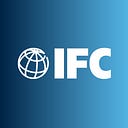By Sérgio Pimenta
The plight of refugees is an increasingly urgent issue. And with good reason. The world is facing the worst refugee crisis in human history — 68 million people were displaced at the end of 2017.
As displacement lasts longer, and numbers grow bigger, humanitarian aid is no longer enough to provide subsistence and services. We need new solutions that offer hope for the large numbers of people who have been forced from their homes.
Many more refugees are finding this hope through commerce in their host communities.
The Kakuma refugee camp in northern Kenya, for example, is an economy unto itself. Home to 180,000 people fleeing from a half-dozen African conflicts, it has shops, restaurants, and even hotels. In fact, IFC and UNHCR found 2,000 businesses around the camp.
Kakuma’s refugees — like others across the world — are not just aid recipients, but also, vendors, employees, employers, customers, and consumers.
Expanding nascent refugee economies is a solution whose time has come. Host governments, with the support of humanitarian agencies and development institutions, need to urgently consider policies, reforms, and new financing tools that help jump start and scale up the economic activity with and around refugee communities. At the heart is the private sector, which is already showing interest and can do much more.
A new IFC study, Private Sector and Refugees: Pathways to Scale, produced in partnership with The Bridgespan Group, studied these issues in detail for the first time, reviewing more than 170 private-sector projects focused on refugees in the Middle East and Africa.
It found that companies were not only helping refugees, they were also creating jobs, providing vocational training, improving infrastructure, financial and social services for host communities.
In Jordan, for example, Irisguard, a tech startup, is enabling refugees to pay for food with an eye scan. In Kenya, Sanivation is providing sanitation services at the country’s largest refugee camp, while also hiring refugees and locals. In Rwanda, another firm, Inyenyeri, is selling affordable, clean-burning cookstoves to tackle pollution at a major refugee camp.
These projects are not only crucial for refugees. They are vital for host countries, which face their own development challenges — over 80 percent of the refugees under UNHCR’s mandate are hosted by developing nations like Ethiopia, Jordan, Kenya, Turkey, and Pakistan.
Still, private firms could be doing much more, the new IFC study found. Over half the companies surveyed said they would like to increase their business with refugees and host communities, but were being held back by a lack of market intelligence, a shortage of financing, and an inability to find the right local partners.
Three things are needed to address those challenges: policies that enable formal engagement between the private sector, refugees and host communities; innovative financing mechanisms, like venture capital, to provide companies with seed financing for refugee projects; and finally, greater sharing of data and market research on refugees and host communities, which can inform business decisions. All of these will require deeper, cross-sector partnerships between companies, governments, humanitarian groups, and development agencies.
There is no time to waste. A person is displaced every two seconds, according to UNHCR.
Facing what for many will be years, if not decades in exile, refugees are starting businesses, selling goods, and trying to earn a living. The private sector can build upon these efforts, so refugees can become self-reliant, give back to their host communities, and when they return home, contribute to their local economies.
Sérgio Pimenta is IFC’s Vice President for Middle East and Africa.
